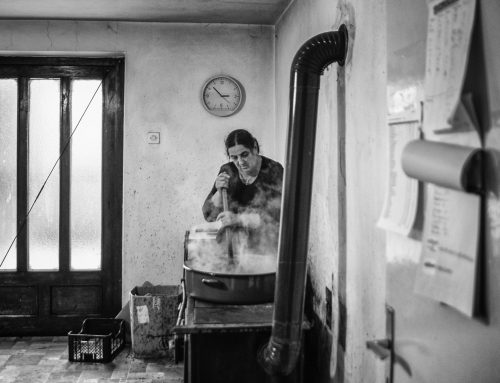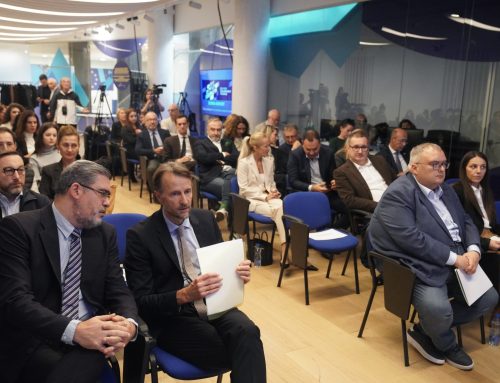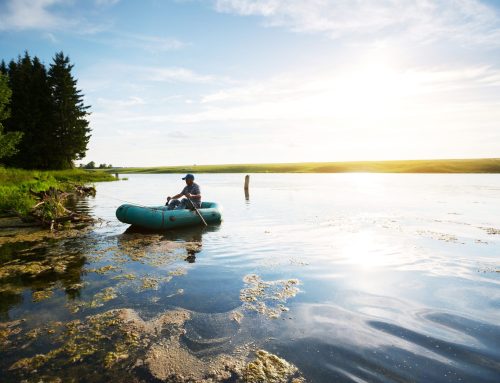The European Union donated one million euros to family companies, small and micro companies and farms that deal with tourism. These are 120 companies from 12 cities and municipalities in the east and southeast of Serbia, which received money from the EU project “#EUzaTebe – for cultural heritage and tourism”, to eliminate the consequences of the COVID-19 pandemic in the tourism sector.
The largest number of future grant beneficiaries, up to 10,000 euros per project, provide private accommodation for tourists and are supported: camps, restaurants, catering providers, boarding houses, hotels and hostels, travel agencies, wineries and beekeepers.
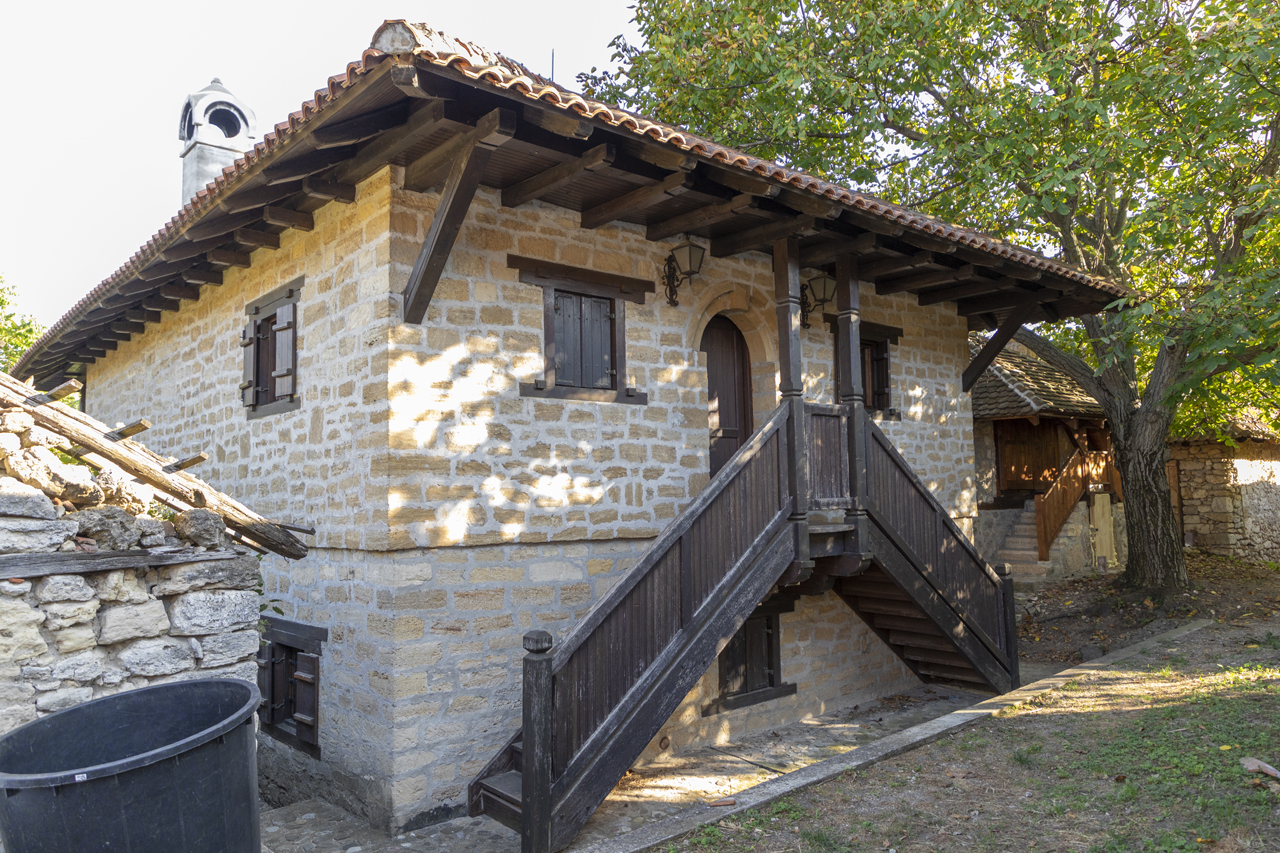 “Serbia is a very beautiful country with a lot to offer. Therefore, tourism should be supported and developed. I have personally visited many places in Serbia, and I am quite sure that there are many more places I want to see. Tourism is part of the economy, and that is why Serbia must improve its tourist offer and connect with international tourist offers. Last year, in November, we launched this ambitious program. Eighteen million euros of EU donations are focused on the lower reaches of the Danube and eastern Serbia, “said Ambassador Sam Fabrizi, Head of the EU Delegation to the Republic of Serbia.
“Serbia is a very beautiful country with a lot to offer. Therefore, tourism should be supported and developed. I have personally visited many places in Serbia, and I am quite sure that there are many more places I want to see. Tourism is part of the economy, and that is why Serbia must improve its tourist offer and connect with international tourist offers. Last year, in November, we launched this ambitious program. Eighteen million euros of EU donations are focused on the lower reaches of the Danube and eastern Serbia, “said Ambassador Sam Fabrizi, Head of the EU Delegation to the Republic of Serbia.
Ambassador Fabrizi spoke at an online grant event, which was broadcast on the EU u Srbiji Facebook page. He emphasized that the coronary virus pandemic changed the lives of all of us this year, but that the European Union wants to continue to help alleviate the difficulties caused by COVID in Serbia, this time in the tourism sector.
“That is why we launched this urgent, extraordinary program for tourism, and that is why today we will allocate financial resources to the projects that have been selected. Tourism is not only big providers, but thousands of entrepreneurs, maternity businesses, small hotels, and they need to be supported. That is why we have determined one million euros to help ethno tourism, family hotels and restaurants, to mitigate the consequences of COVUD and to better prepare for the tourist season 2020/21. More than 450 projects have applied, 120 of the most important ones have been selected, and today they are being awarded funds “, said Ambassador Fabrizi.
“I am extremely pleased with how the business community has responded to our call. We understand that after COVID we will all have to live differently, and we will have to increase the capacities and qualities of the tourist structure, in order to be able to receive tourists in a safe environment. That is why we will launch another project in the future to give assurances of cleanliness and safety “, he added.
This urgent emergency project for tourism is part of a broader package of measures for tourism that the EU provides to the Serbian economy, reminded Fabrizi, adding that after the outbreak of the pandemic in Serbia, the European Union allocated 15 million euros for masks, respirators and other short-term aid. Million euros for the economy.
Alexander Beetz, leader of the project project “#EUzaTebe – for cultural heritage and tourism” also attended the award ceremony.
“I am sorry that we only had a million euros at our disposal because there were so many projects that deserved our support. Our project will announce another competition in the coming months, for those who did not pass this time. We hope that the support of the EU will enable them to improve their tourist offer, to invest and to prepare for the winter tourist season, and the summer next year “, said Beetz.
Beneficiaries of grants from Negotin, Sokobanja and Golubac joined the online award and thanked for the funds they received.
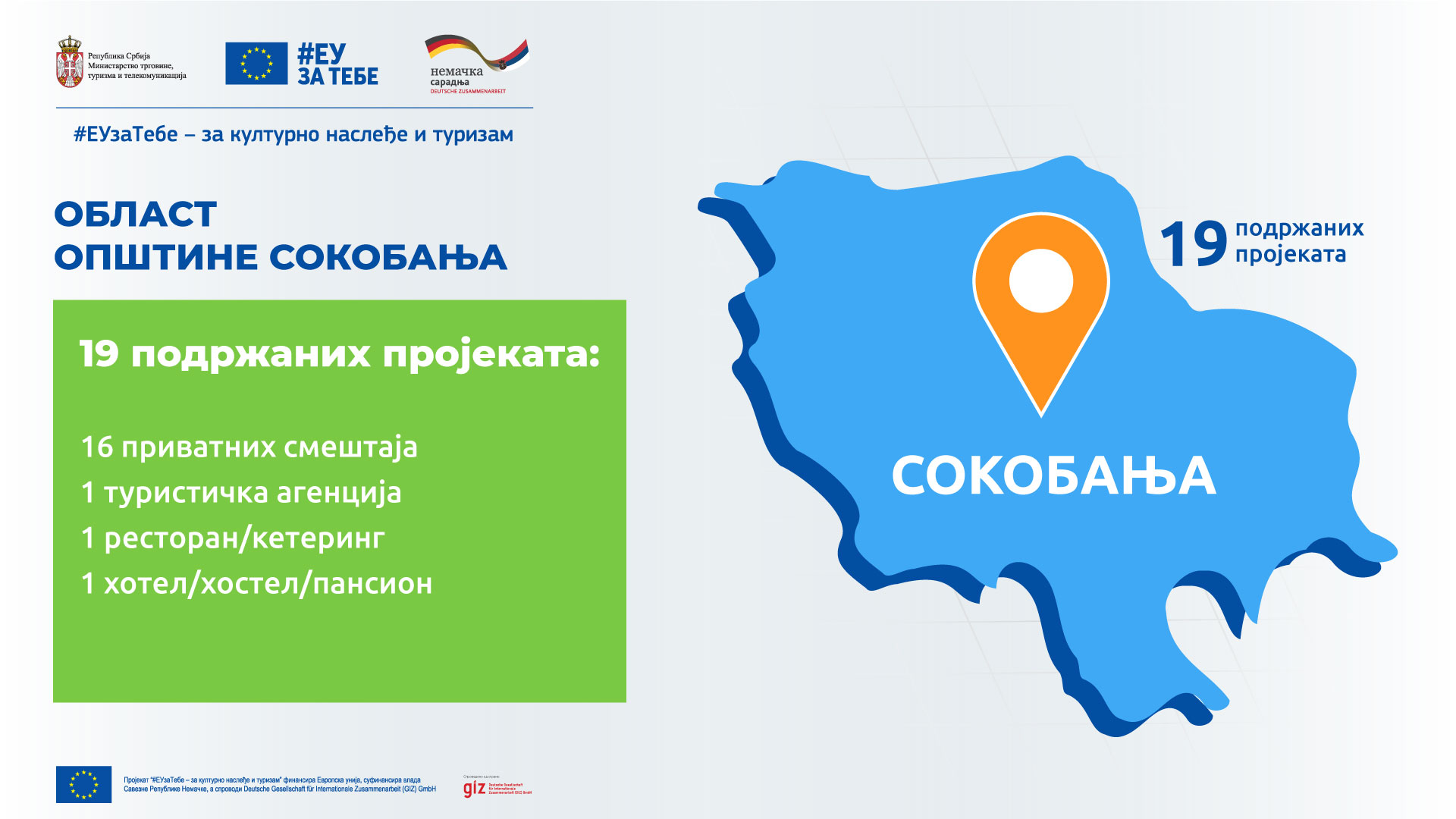 The right to participate in the competition had individuals who provide accommodation services, farms and entrepreneurs/micro and small enterprises whose activities in the field of tourism take place in Boljevac, Bor, Golubac, Kladovo, Knjazevac, Majdanpek, Negotino, Pozarevac, Smederevo, Sokobanja , Veliko Gradište and Zaječar.
The right to participate in the competition had individuals who provide accommodation services, farms and entrepreneurs/micro and small enterprises whose activities in the field of tourism take place in Boljevac, Bor, Golubac, Kladovo, Knjazevac, Majdanpek, Negotino, Pozarevac, Smederevo, Sokobanja , Veliko Gradište and Zaječar.
“#EUzaTebe – for cultural heritage and tourism” is a project aimed at the development of tourism as a significant economic potential for stimulating the economic development of eastern Serbia and the Lower Danube region. The project is funded by the European Union with 15 million euros, co-financed by the German Federal Ministry for Economic Cooperation and Development with 1.6 million euros, and implemented by the Deutsche Gesellschaft für Internationale Zusammenarbeit (GIZ).


